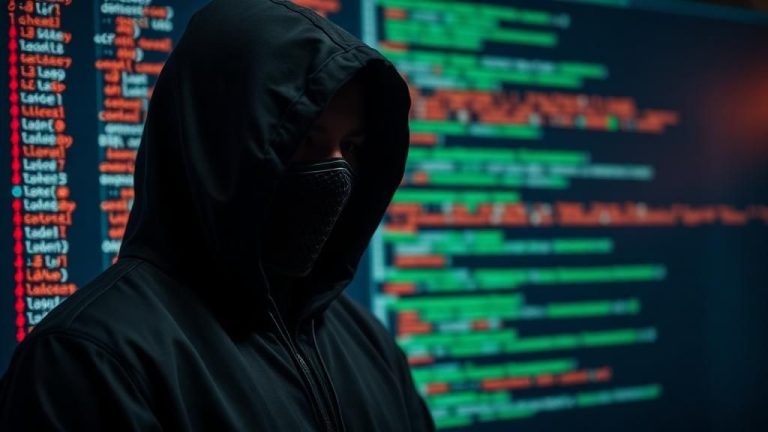The Shands Elbert data breach has been confirmed after the Akira ransomware group added the St. Louis-based law firm Shands, Elbert, Gianoulakis & Giljum LLP to its dark web leak site. The attackers claim to have stolen more than 31 gigabytes of sensitive data from the firm’s internal servers, including confidential client records, legal files, employee information, and financial data.
The breach was listed on Akira’s portal on November 6, 2025, as part of a coordinated attack wave that also affected multiple U.S. organizations across different industries. The inclusion of a law firm highlights the growing trend of ransomware actors targeting the legal sector due to its access to privileged information and valuable client data.
Background on Shands, Elbert, Gianoulakis & Giljum LLP
Shands, Elbert, Gianoulakis & Giljum LLP is a well-established law firm based in St. Louis, Missouri, with more than five decades of experience in business, education, and labor law. The firm provides comprehensive legal services to corporations, government agencies, educational institutions, and individuals, covering areas such as employment disputes, litigation, and estate planning.
The firm’s extensive client portfolio and handling of sensitive legal materials make it a high-value target for cybercriminals. Law firms like Shands Elbert manage large archives of personally identifiable information (PII), financial transactions, contracts, and legal filings, all of which can be exploited for extortion or sold on the dark web.
Details of the Breach
According to Akira’s listing, the attackers claim to have exfiltrated over 31GB of confidential corporate and legal data from Shands Elbert’s internal systems. The stolen data reportedly includes:
- Client files and case documents
- Employee and attorney personal information (names, addresses, phone numbers, Social Security numbers, driver’s licenses, and passport copies)
- Court records and police reports
- Financial data including invoices, tax records, and banking details
- Internal email correspondence and privileged communications
- Medical records and personal information of clients
The nature of this data makes the Shands Elbert data breach particularly serious. Client files and legal communications are protected under attorney-client privilege, and their exposure could have far-reaching ethical and legal implications. The attackers also claimed to have obtained “numerous medical files,” suggesting that some cases handled by the firm involved sensitive health information.
About the Akira Ransomware Group
The Akira ransomware operation has rapidly become one of the most aggressive cyber extortion groups in the world. First detected in early 2023, the group has conducted hundreds of attacks targeting companies in North America and Europe. Akira typically uses a double-extortion model, stealing sensitive data before encrypting systems to force ransom payments.
Once victims refuse to pay, Akira publishes portions of the stolen data on its dark web leak site to pressure organizations into negotiating. The group’s leak announcements often include brief summaries of the victim’s industry, stolen data size, and types of compromised information, as seen in the Shands Elbert data breach.
Akira is also known for exploiting vulnerabilities in remote access systems, VPNs, and outdated software. The group favors professional services firms and companies with regulatory obligations, where data exposure has severe reputational consequences.
Impact of the Shands Elbert Data Breach
Law firms face unique risks when breached. The exposure of case files, client communications, and personal data can compromise ongoing legal proceedings and violate attorney-client privilege. For Shands, Elbert, Gianoulakis & Giljum LLP, this incident could lead to client lawsuits, regulatory investigations, and professional liability claims.
Potential consequences of the breach include:
- Client Data Exposure: Confidential case documents, settlements, and correspondence could be leaked or sold to competitors or hostile parties.
- Employee Information Leak: Personal and professional data belonging to attorneys and staff may be used for identity theft or social engineering.
- Reputational Damage: Clients may lose confidence in the firm’s ability to safeguard sensitive information, leading to loss of business.
- Legal and Ethical Repercussions: Exposure of privileged information could lead to sanctions or disciplinary action under bar association rules.
The potential release of police reports and court records could also expose details of ongoing or closed cases. In legal settings, even partial leaks can influence litigation outcomes or public perception.
Technical Aspects of the Attack
While Shands Elbert has not released any technical information about the attack, the pattern aligns with Akira’s typical tactics. The group often targets networks through compromised credentials or exploited vulnerabilities in outdated VPN appliances and firewalls. Once inside, attackers conduct reconnaissance and harvest sensitive data before deploying ransomware payloads.
During this process, data such as client files and email archives are compressed and transferred to remote servers. Akira operators then encrypt network drives and leave ransom notes demanding payment in exchange for decryption keys and a promise not to leak the data.
Given the volume of data reportedly stolen, it is likely that the attackers had prolonged access to Shands Elbert’s systems. Long-term infiltration allows exfiltration of large file repositories, email servers, and backup archives without triggering immediate detection.
Company Silence and Regulatory Obligations
As of this writing, Shands, Elbert, Gianoulakis & Giljum LLP has not made a public statement regarding the data breach. No press releases or official notifications have been issued, and the firm’s website does not mention any disruption. This silence could be due to ongoing forensic analysis or potential ransom negotiations.
However, under U.S. data protection laws, law firms handling employee or client PII are generally required to notify affected individuals and regulators if personal information is confirmed to be compromised. This includes federal and state reporting obligations, as well as disclosure requirements under the Health Insurance Portability and Accountability Act (HIPAA) if medical information was involved.
Legal Industry Implications
The Shands Elbert data breach highlights a growing cybersecurity crisis within the legal profession. Law firms are prime targets because they maintain highly confidential records but often lack enterprise-grade cybersecurity infrastructure. Attackers exploit this gap to gain leverage, knowing that the potential fallout from leaked legal files makes victims more likely to pay ransoms.
This incident follows several other high-profile law firm breaches over the past two years, including attacks on regional firms handling sensitive civil and criminal cases. Many ransomware groups, including Akira, LockBit, and ALPHV, have prioritized law practices due to the concentration of privileged data.
Cybersecurity experts have repeatedly warned that law firms must adopt stricter controls, such as encryption of stored client files, network segmentation, and dedicated monitoring for exfiltration attempts. The Shands Elbert case demonstrates how failure to implement such measures can result in devastating exposure.
What Clients and Employees Should Do
Individuals associated with Shands Elbert should take immediate precautions to protect their personal information and digital security. Recommended steps include:
- Change all passwords associated with the firm or related accounts.
- Enable multi-factor authentication where possible.
- Monitor bank statements, credit reports, and insurance accounts for unusual activity.
- Be alert for phishing emails referencing Shands Elbert or Akira.
- Run regular malware scans using trusted software such as Malwarebytes.
Ongoing Investigation and Outlook
The Shands Elbert data breach adds to a growing list of ransomware attacks against professional services firms. With 31GB of highly confidential material allegedly in Akira’s possession, the potential damage could extend far beyond the firm’s immediate clients. The exposure of case files, personal identifiers, and financial records may impact court cases and compromise the privacy of hundreds of individuals.
This incident underscores the urgent need for cybersecurity resilience in the legal sector. Law firms like Shands, Elbert, Gianoulakis & Giljum LLP must invest in proactive defense strategies, including intrusion detection, secure data handling, and employee awareness training.
For verified coverage of major data breaches and the latest cybersecurity threats, visit Botcrawl for expert analysis and real-time updates on ransomware incidents worldwide.



